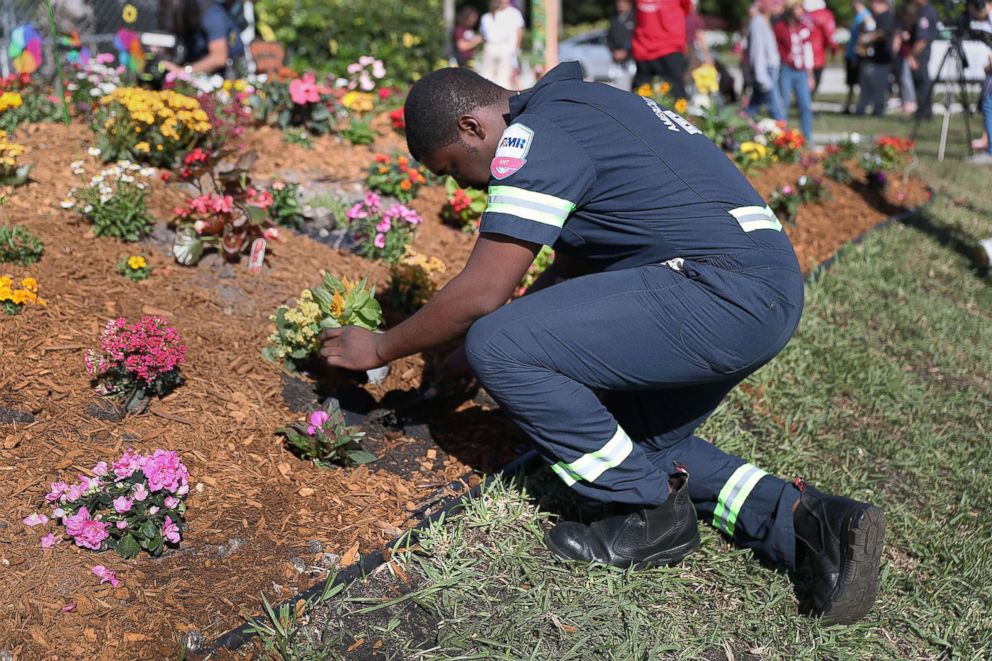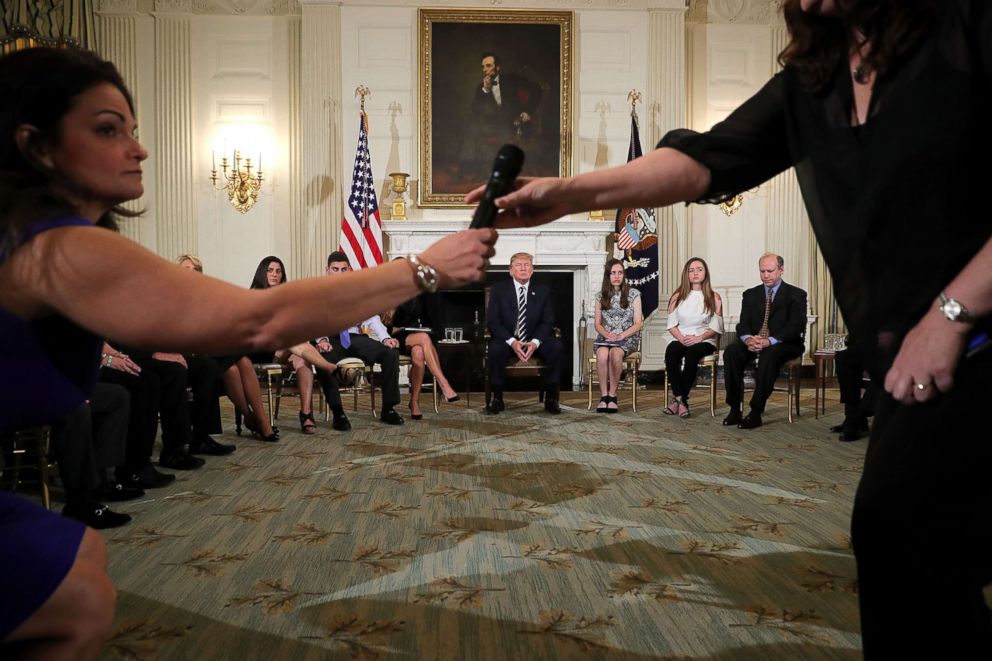Student journalists track youth shooting deaths since Parkland massacre: 'Kids are still dying today'
Student journalists highlighted the youth shooting deaths since Parkland.
In honor of the one year anniversary of the tragic shooting at Marjory Stoneman Douglas High School in Parkland, Florida, that left 17 people dead, 200 student journalists from across the country highlighted the stories of 1,200 young people that have been murdered due to gun violence since then.
"Since Parkland" shares multiple stories of young people 18 years old and under that never lived to see another birthday because their lives were stripped away from the pull of a trigger.
The Trace, Miami Herald and McClatchy Newspapers partnered with the student journalists to document and research the "patterns in child gun deaths — and what might reduce them."
On the project's website, a plethora of pictures pop up, each of different young people whose lives were taken too soon. Each picture states the name of the young person along with their age.
The website even distinctively places the 1,200 youth under categories like "diligent students," "adventurers," "infants and toddlers," "dancers," "musicians" and "young parents."
"He played hide-and-seek in the cabinets," a student journalist wrote about Malachi La’Velle Barnes, who was shot to death just 28 days before his fourth birthday. "On Nov. 22, 2018, Malachi La’Velle Michael Barnes was shot in the back seat of his father’s car in Toledo, Ohio. ... His mother already had the invitations for his birthday party," the story read.
Peyton Nicole Hurt, 15, of Ledbetter, Kentucky, is remembered for "still helping others, even in death."
"She loved her siblings, her nephews, the people that surrounded her. She was always there for them," a "Since Parkland" staffer wrote. "Peyton Nicole Hurt, 15,was shot at a house party by her ex-boyfriend in Ledbetter, Kentucky, on June 9, 2018. She was kept on life support long enough to donate her organs."

Davonte Friedman, 18, of Baltimore, Maryland, is remembered by his loved ones for his community activism.
Last summer, Friedman met with the Baltimore City Council to illuminate his research on teens in his community that lacked opportunities, according to “Since Parkland” student journalist Madison Hahamy.
"Though he was nervous, his brother recalled, once he began to speak, the words poured out," Hahamy wrote. “When family asked what he wanted for his recent 18th birthday, he said that he didn’t want to have a big celebration. Growing up in a troubled neighborhood, he told his mother that 'I’m glad I made it to see 18.'"
Less than a week after his big 18th birthday, Friedman was murdered in his hometown.
Hahamy, 18, of Glencoe, Illinois, said she joined the "Since Parkland" project to "connect to Chicago as a whole and to teens as a whole" to help highlight the significant gun violence her neighboring community faces.
"The main thing I wanted to do with this project is to be a part of that conversation and to try to use my words in the power of my writing, try to make the story something more accessible, something more human so people would see that kids are dying even if it’s not reported on the news that it’s a really big problem," Hahamy told ABC News’ "The Briefing Room."
"Kids are still dying today," Hahamy said.
Thursday, President Trump expressed opposite sentiments praising the "tremendous strides" the country has made since the Parkland shooting in regards to the passage of the STOP School Violence Act, which provides funding to enhance school security in the form of metal detectors and other security measures, and the ban of bumpstocks, which the Trump administration rolled out last December.

"The day after the tragedy in Parkland, I told the Nation that school safety would be a top priority for my Administration. We took immediate action, committing ourselves to a sacred vow to do everything in our power to ensure that evil does not stalk our children on the playgrounds or in the hallways of our Nation’s schools," the president said in his written statement.
Some proposals endorsed by the president in the wake of the Parkland shooting last February included raising the minimum age to purchase firearms to 21 and arming teachers. They have been put on the backburner.
But, Hahamy wonders what the different outcomes would have been for the 35 young children she wrote profiles on — including a 3-month-old boy — if gun regulations were changed.
"There’s so much...that we will never know about what these kids could have accomplished and what they could’ve been," Hahamy told ABC News' "The Briefing Room." "The loss in that sense is just inexplicable."
ABC News' Jordyn Phelps contributed to this report.




